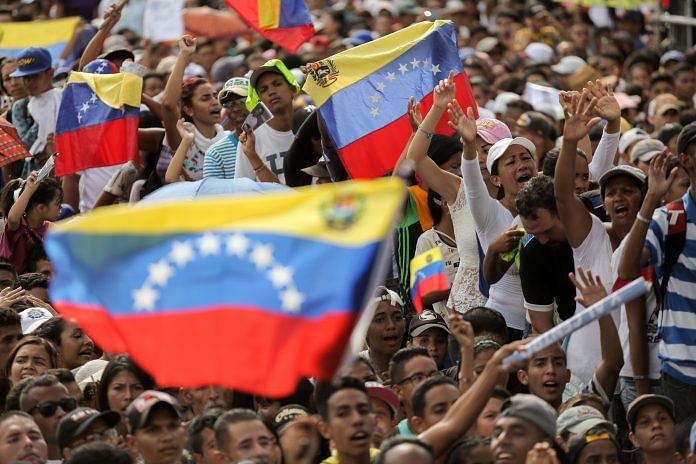
Venezuela will hold presidential elections Sunday, but they are likely to be rigged. North Korea has indefinitely postponed peace talks with South Korea. China and USA attempt to disengage economically.
A rigged election might lead to real change in Venezuela
In Venezuela the opposition is debating whether it should even turn up for the presidential election set to held Sunday.
“After the Maduro regime artlessly manipulated the outcome of not one but two elections last year, its reassurances that the vote will be fair fool no one. Its most popular opponents are either barred from standing, in jail or in exile,” writes Francisco Toro in The Washington Post.
The opposition on its part does not want to participate in the election and lend it legitimacy since they are certain of it being rigged.
But the hugely unpopular Maduro government is now likely to face problems irrespective of the election outcomes owing to the social and economic breakdowns in Venezuela.
“Maduro is no Putin. His regime’s standing with the bureaucracy and the military is precarious. For a leader so universally loathed to try to steal an election risks setting off a series of events that end with him out of power — perhaps even in jail.”
“And this is the main reason to believe the May 20 “election” could, in a strange sort of way, end up yielding real change: not because Maduro has any sort of democratic scruples — he doesn’t — but because he has wrecked the country so thoroughly that even his henchmen’s loyalty is in doubt,” writes Toro.
North Korea has already postponed peace talks with South Korea
North Korea has indefinitely postponed peace talks with South Korea and threatened to pull out of talks with USA.
“The North gave two reasons for its ire: long-scheduled military exercises between America and South Korea, to which it had previously acquiesced (although it may have been surprised by the involvement of stealth fighters, which could be used in a “decapitation” strike, and B-52s, which can carry nuclear bombs), and America’s insistence that it must unilaterally forswear nuclear arms—the very condition on which America agreed to talks in the first place,” writes The Economist.
North Korea has maintained that economic incentives are not enough for it to give up nuclear weapons.
“Mr Trump’s eagerness to make history in front of the global media will not have escaped Mr Kim. Nor will southerners’ desire for peace.”
North Korea on its part has said that it would pursue the talks only if US is “sincere’’.
“But it is the North’s sincerity that has always been in question. At the very least, the kerfuffle is a reminder that until a few months ago, Mr Kim was seen as untrustworthy and belligerent. He probably still is,” writes The Economist.
US and China are learning to live without each other
“As a top Chinese economic policymaker meets with the Trump administration this week in hopes of heading off a potential trade war, some officials in both countries are planning for a time when the world’s two biggest economies do not need each other quite so much anymore,” writes Keith Bradsher in The New York Times.
Both counties are formulating plans to reduce economic dependence on one another even as they acknowledge that complete disengagement is not a possibility.
“They are seeking nothing less than a fundamental rethinking of a trade relationship that encompasses more than $700 billion in goods and services that flow between the countries every year.”
China relies on the US for high end technology. US on the other hand is dependent “on Chinese-made small components, machinery and other dull-but-essential parts in the global supply chain.”
But the reason for the possible trade war is not just economic.
“The focus on disengagement reflect broader political realities. China is rapidly building a world-class navy; conducting military exercises in Africa and off the shores of northern Europe; and developing some of the world’s most advanced stealth fighter planes and ballistic missiles. The military muscle-flexing has caused alarm in Washington and directly influenced trade policy,” writes Bradsher.

COMMENTS